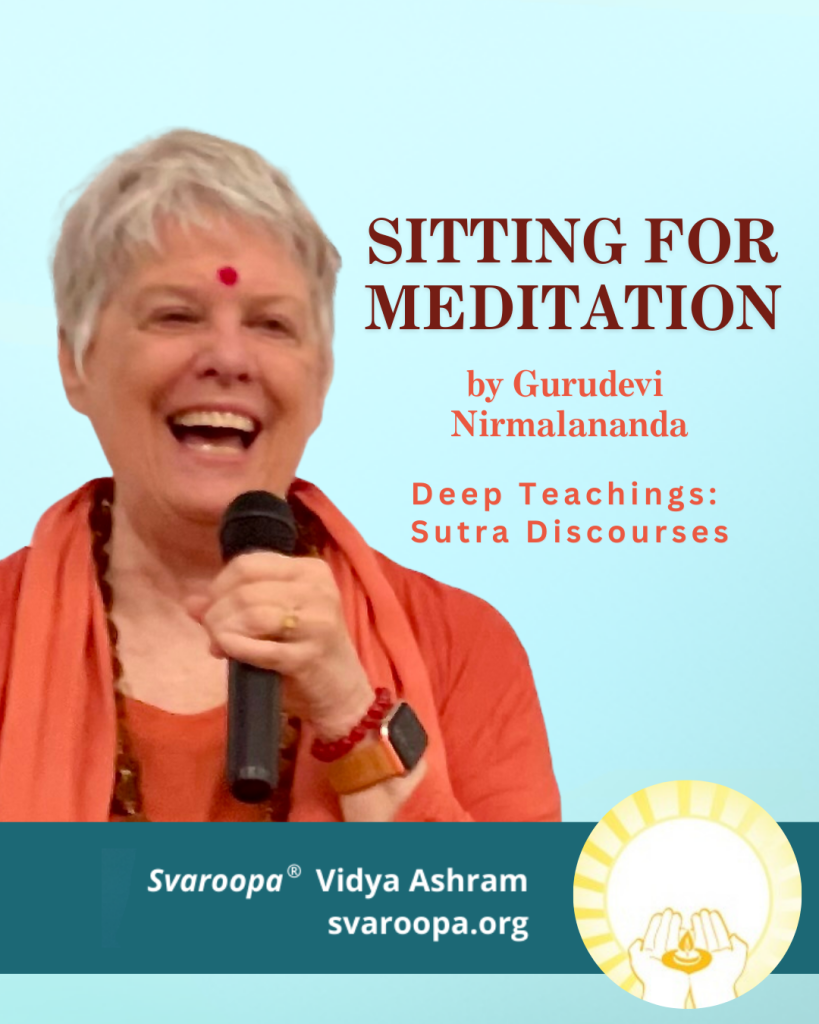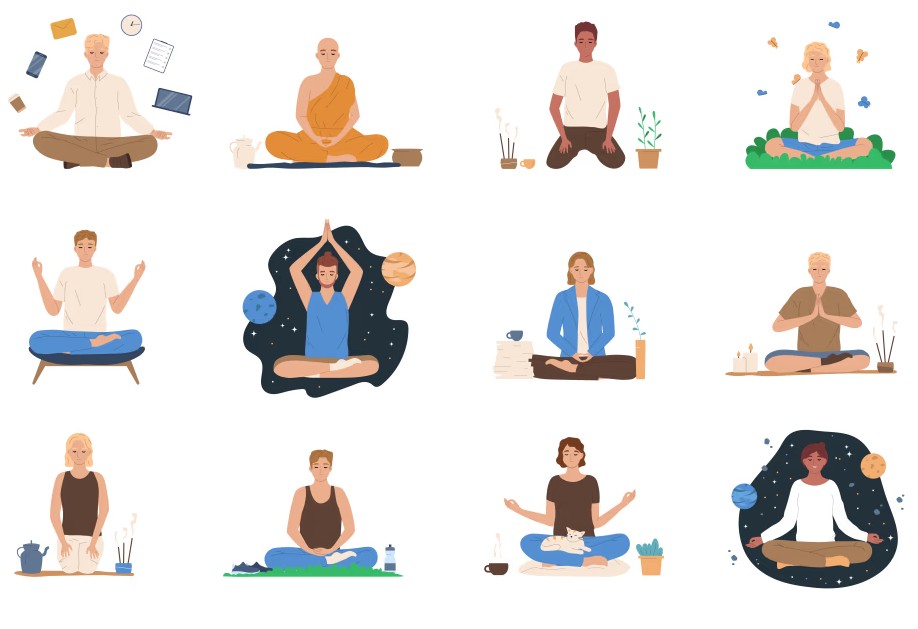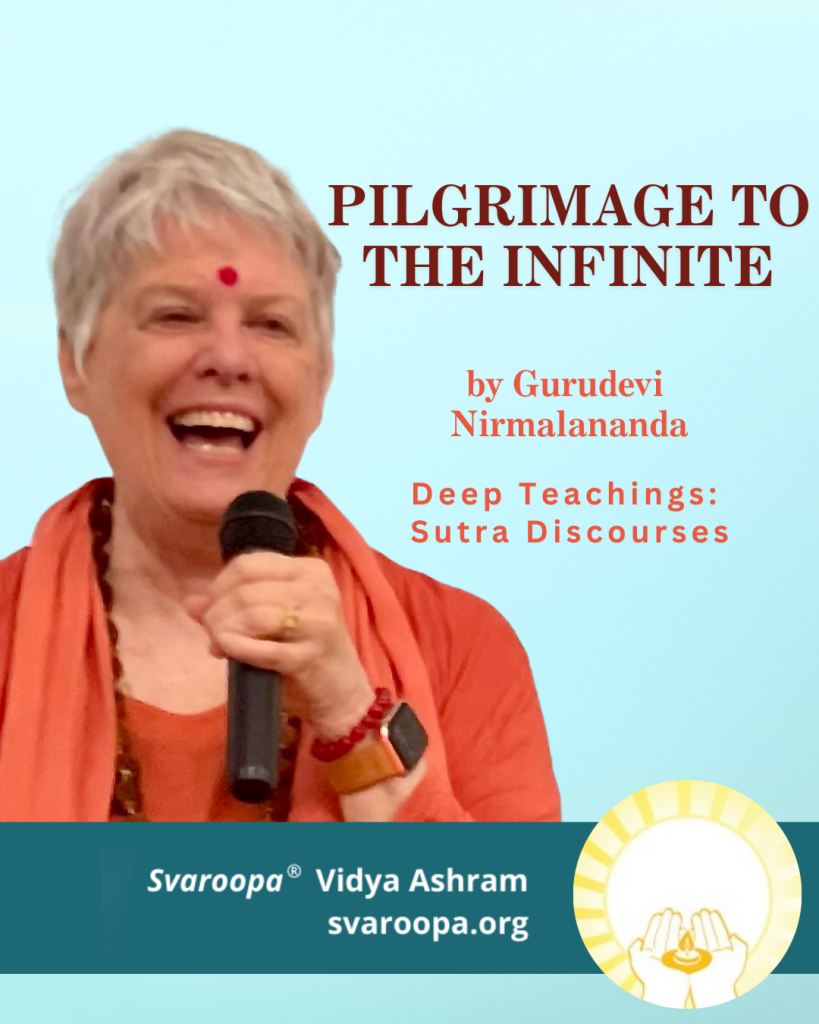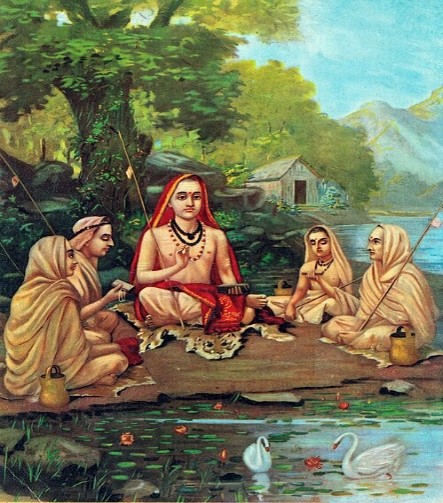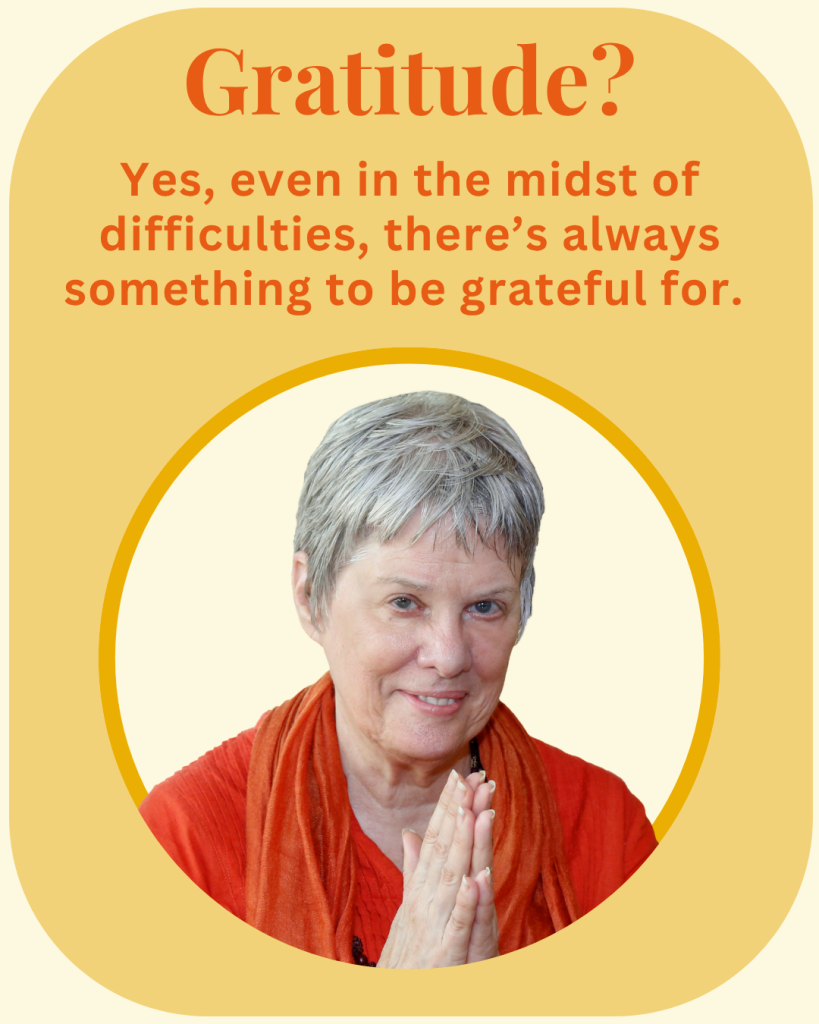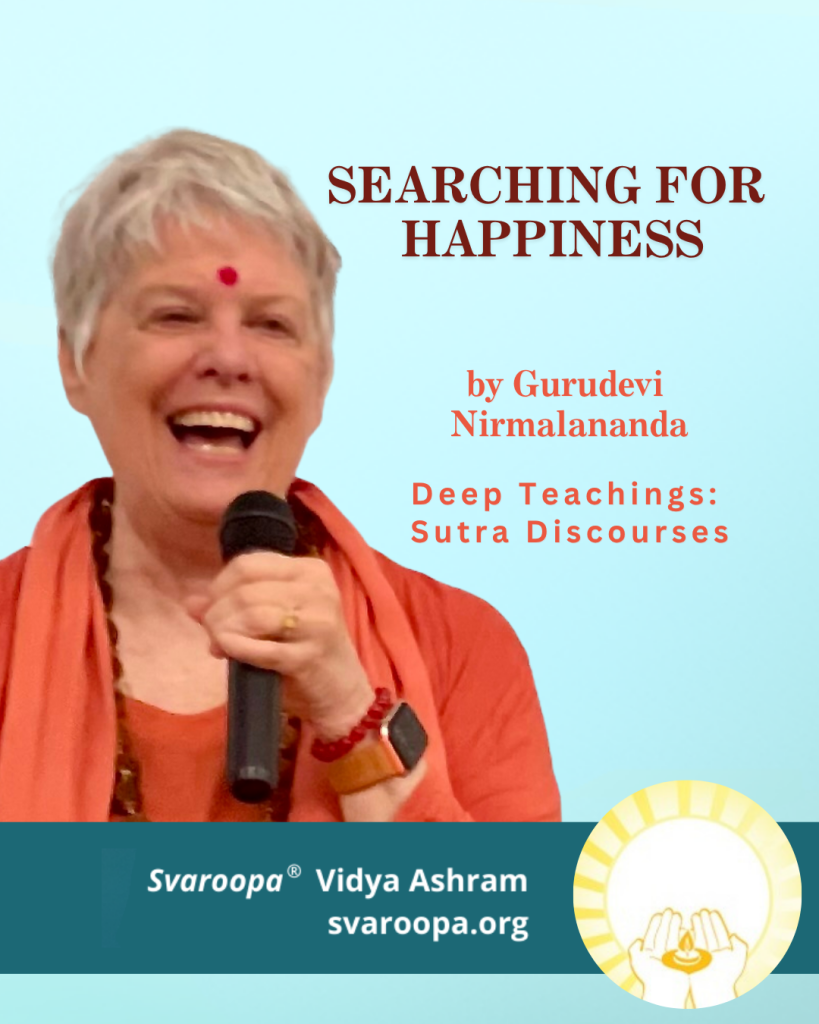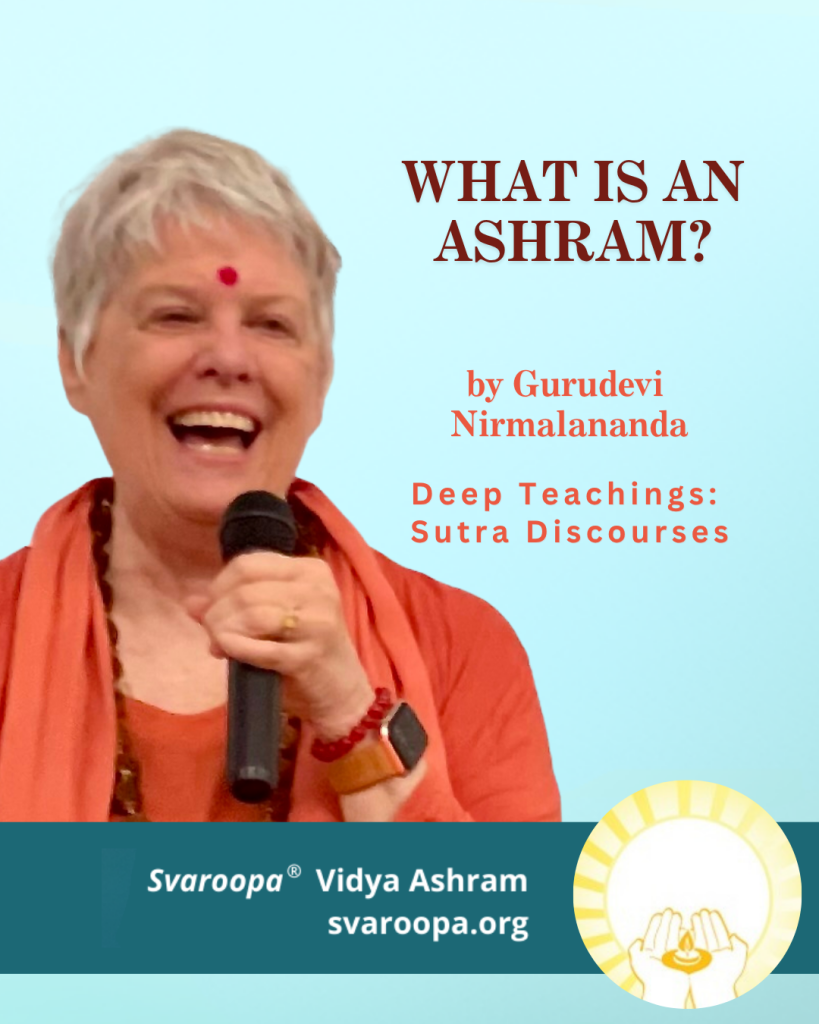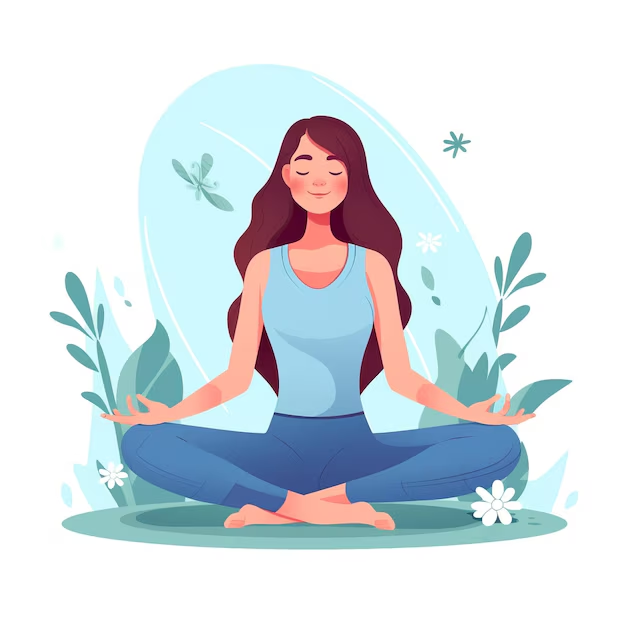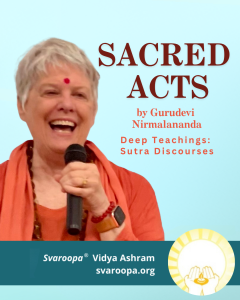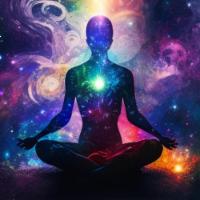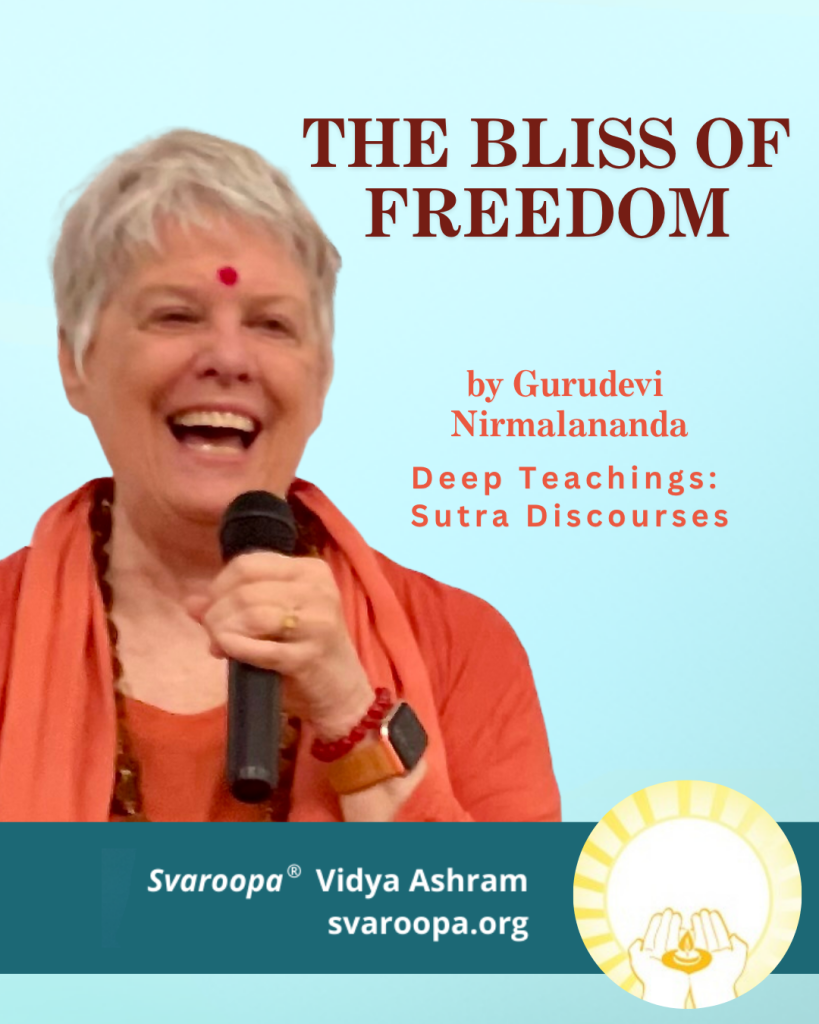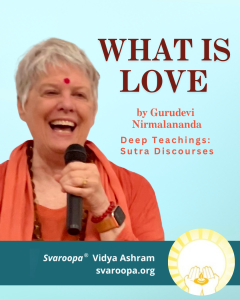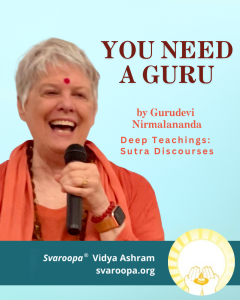Meditation is a natural and easy state, something everyone experiences.
Just as every human being experiences sleep, they also experience meditation. They couldn’t tell you they were meditating, but just sitting and staring into space happens sometimes – no thoughts, a moment of motionlessness, their mind is still.
It’s a light meditative state. Someone says your name and your head turns. It takes a moment for you to focus your eyes and engage your brain – huh? Where were you?
You were not involved with what your eyes were seeing. You were not hearing things – or maybe, like here, sometimes you hear the traffic go by, but it doesn’t pull you to it. Not looking outward, poised in the in-between, a sweet moment of stillness. It’s a light meditative state.
Yet yogic meditation takes you deeper – by using stillness as an entry point deeper within. Deepening into your own Self, you experience fullness, not merely stillness.
Your own Self is the Beingness that is being all, the whole universe and all that is in it. That One Divine Reality underlying all the diversity of this world also underlies your life, your body, your mind, your heart. Your essence is the One Essence that is being all — Self.
My Baba described it this way:
Meditation is universal. It is not the property of any particular religion or nationality. Is there such a thing as Hindu sleep or Christian sleep or Muslim sleep? Sleep is our own property, and in the same way meditation belongs to us.
Sleep belongs to us. In the same way, meditation belongs to us. Baba called it “the religion of man.” Meditation is a human capacity.
Different meditative systems use different processes to get you there, but they all do the same thing – settle you within. We use mantra, a Sanskrit phrase that honors your inmost essence, your inherent Beingness, your inherent Divinity. You fill your mind with the vibration of Consciousness so your mind heads toward…
